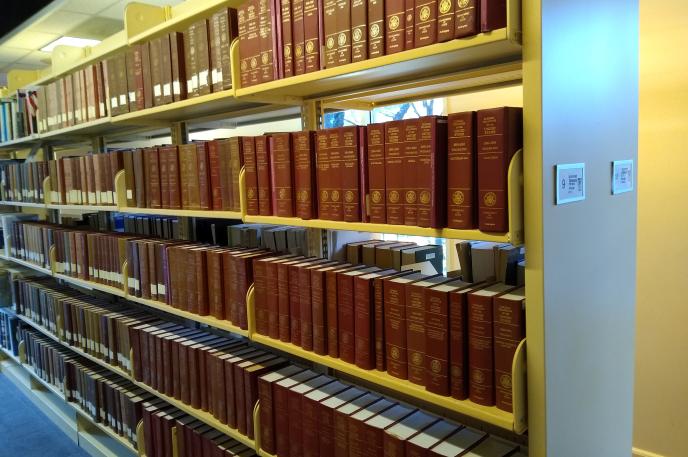
Who knew government information could actually be interesting?
December 16, 2020
Many people would rather run in the opposite direction rather than encounter any government information. But they would be missing out on amazing publications. One of them is from The National Aeronautics and Atmospheric Administration (NASA). They publish wonderful books about space and our efforts to understand it. Starting in 2001, a division of NASA started an art project using images taken of earth from space. The Earth as Art images are amazing and we have the book you can check out. Our library was able to host an exhibit of 24 of these on canvas at Main Library.
Charlotte Mecklenburg Library was designated a Federal Depository Library in 1962 by Senator B. Everett Jordan. Today, there are 1,115 U.S. libraries in the Federal Depository Library Program (FDLP) including the U.S. Senate Library, university libraries, law libraries and we are one of 175 public libraries with this proud distinction.
The FDLP has been part of the U.S. Government Publishing Office (GPO) (formerly Government Printing Office) since 1895, providing government information to libraries serving the needs of people across the nation for information by and about their federal government.
Providing information from the federal government can cover a lot of territory. There are hundreds of federal agencies (the U.S. Government Manual lists them!) and they all produce information. In fact, the United States government is the largest publisher in the world. Today, a lot of that is published online through websites, databases and social media.
Our library’s Federal Documents Collection includes print, maps, microfiche, DVDs and catalog records with links to online publications. We are a “Selective Library” so do not receive everything the GPO publishes, but a selection of items that would interest our community. There are essential documents such as the 50 volumes of The United States Code which is The Law for our entire country and the 244 volumes of The Code of Federal Regulations which enforce that law. These titles are also online at www.govinfo.gov, but not everyone has internet access, so our library has these available in print too.
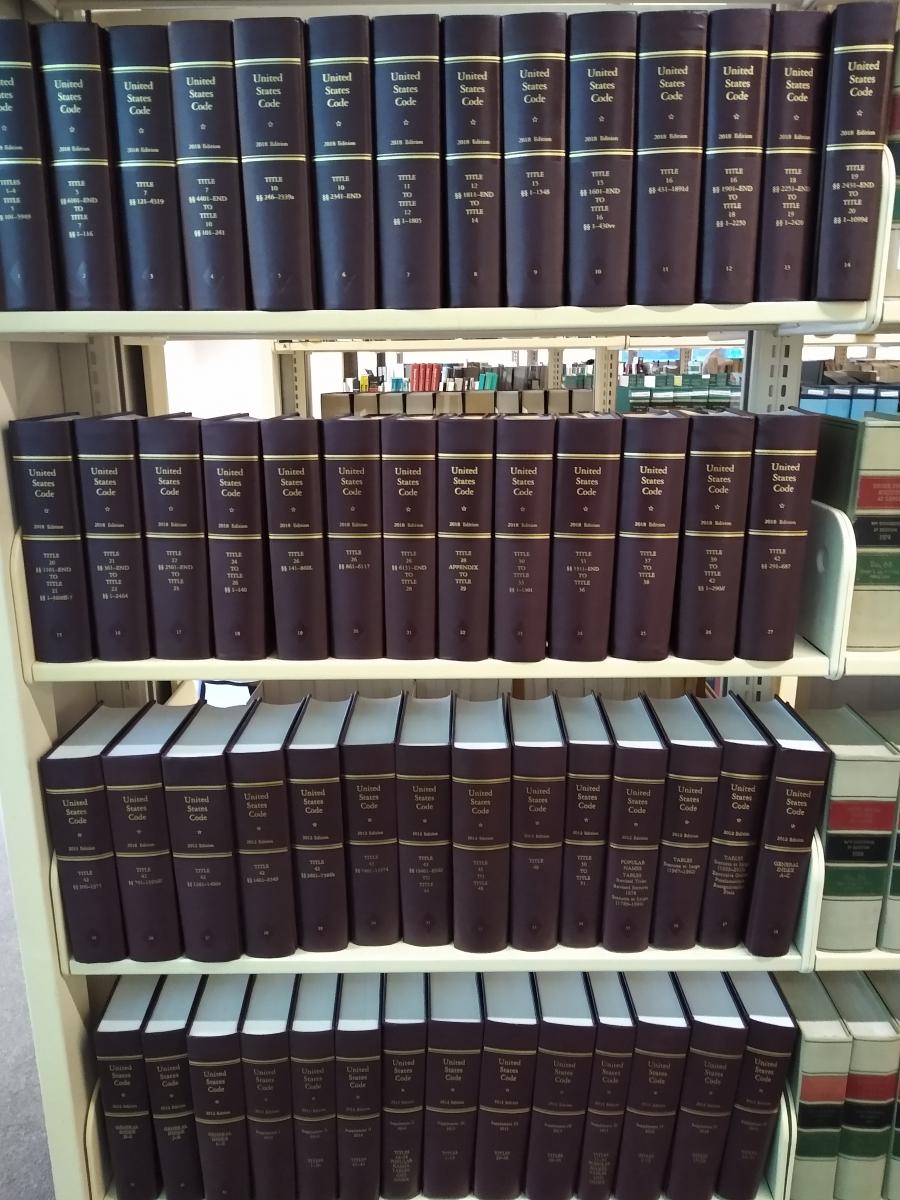
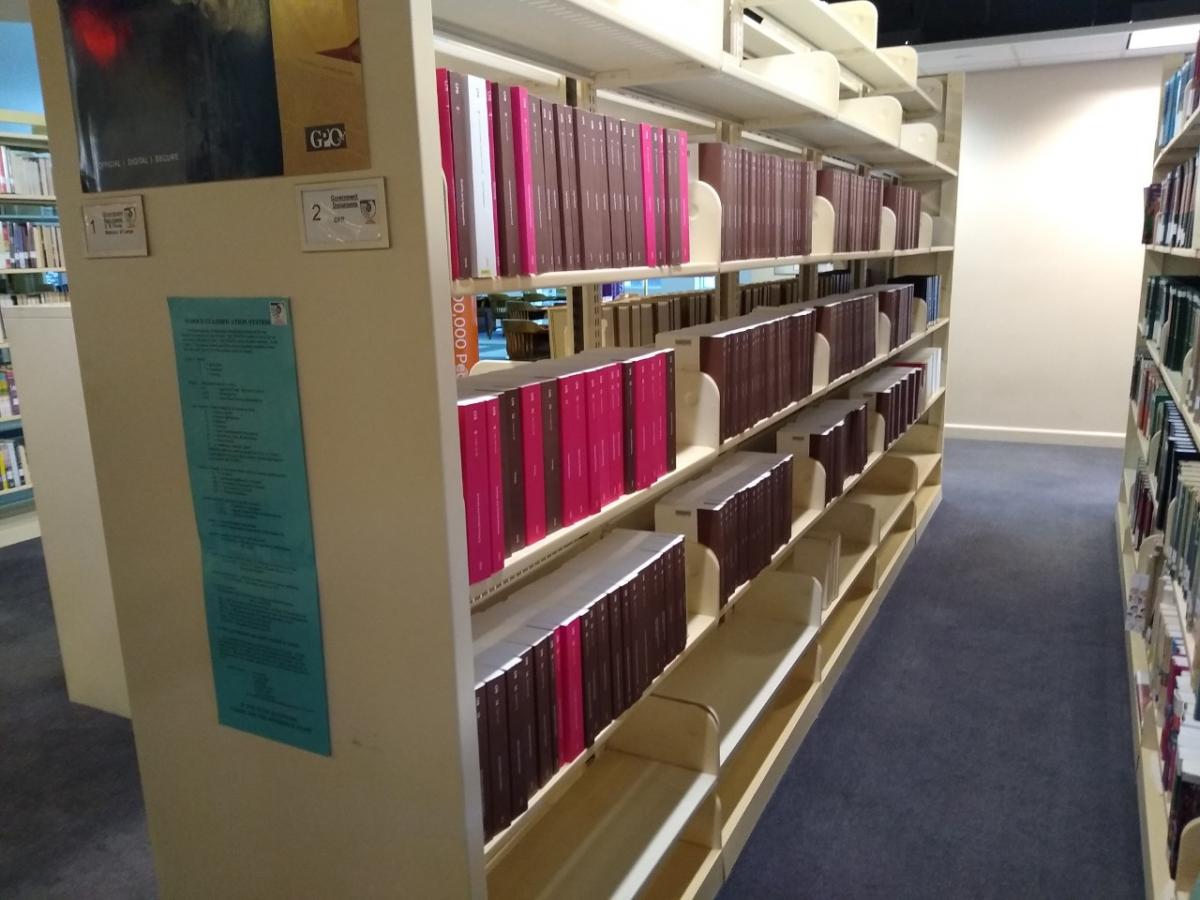
(Left) U.S. Code books and (right) The Federal Code of Regulations.
The Department of Defense publishes military history titles veterans, history buffs and students enjoy. There are titles about all branches of service from the Revolutionary War up to present conflicts. Some are about specific battles such as the World War II (WWII) Bismarck Archipelago, or annual publications such as Missile Defense Review, or personal experiences such as Eyewitness to War-The US Army in Operation AL FAJR : An Oral History.
The United States Census Bureau has counted every person living in the United States every 10 years since 1790. It has other surveys to collect demographics, business and economic data between those 10 years. Our library has access to all those statistics either in print or online. The annual Statistical Abstract of the United States provides thousands of tables. These statistics are used all over the world by governments, businesses, nonprofits and students to study, plan and make decisions based on authoritative data.
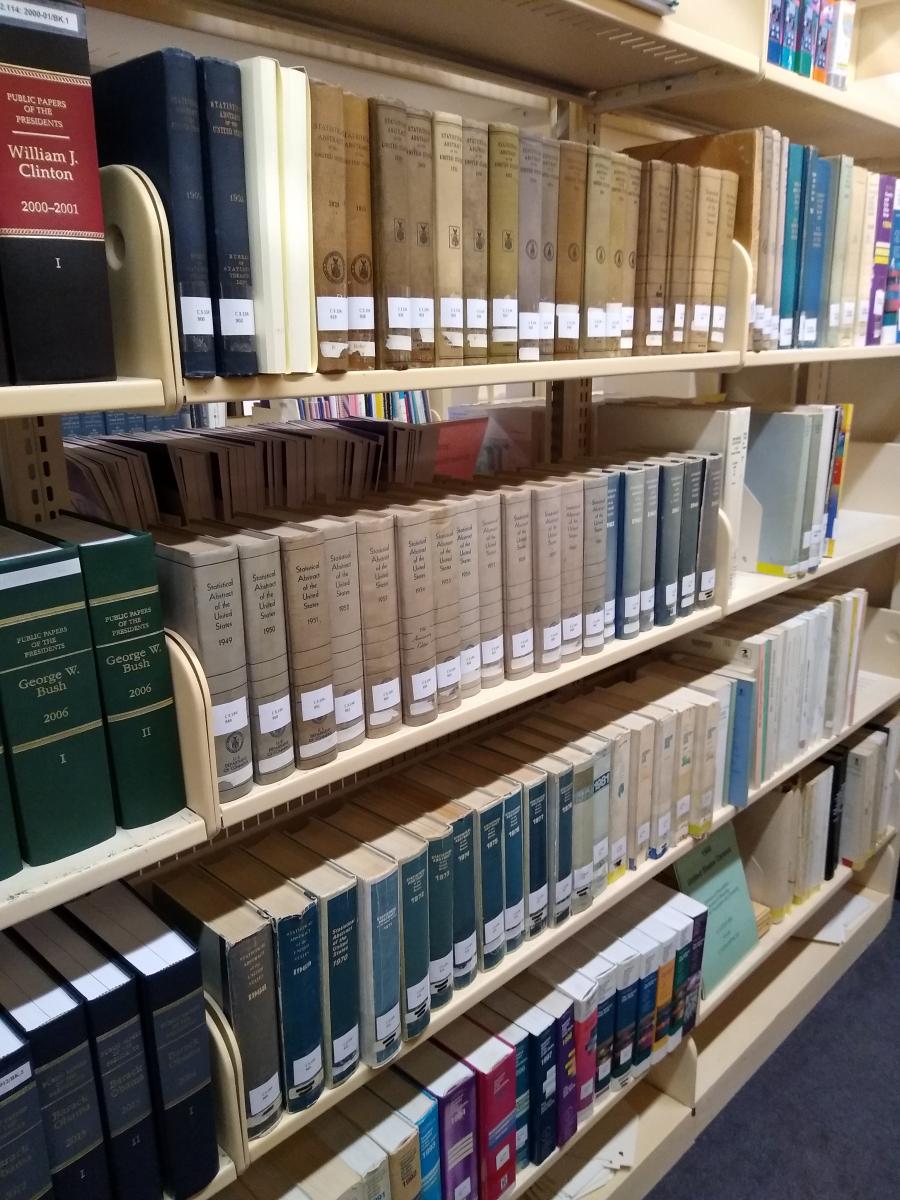
(Left) Statistical Abstract of the United States
The Library of Congress (LOC) is the largest library in the world, with millions of books, recordings, photographs, newspapers, maps and manuscripts in its collections. The LOC is the main research arm of the U.S. Congress and the home of the U.S. Copyright Office. There are exhibits and programs galore. Our library has been able to receive several traveling exhibits and poster sets for display from the LOC.
Maps are also a fun way to learn about a place. Our library has topographical maps from the United State Geological Survey (USGS) for North Carolina and surrounding states. We even have sets of the copper plates that were used to create a few of the maps in our Robinson-Spangler Carolina Room at Main Library. The USGS uses information to inform us about changes in our world. Other maps have come from the Central Intelligence Agency (CIA). The CIA World Factbook containing an amazing amount of international information.
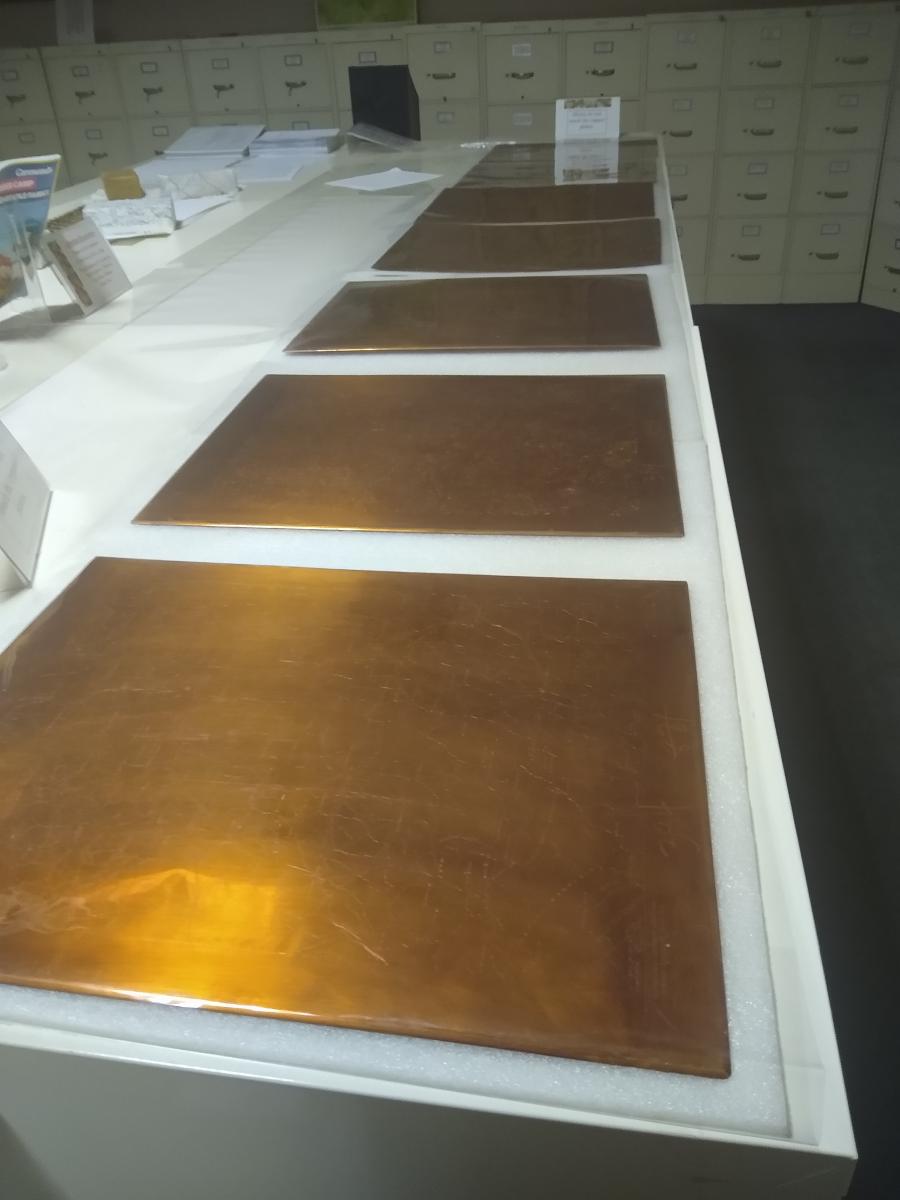
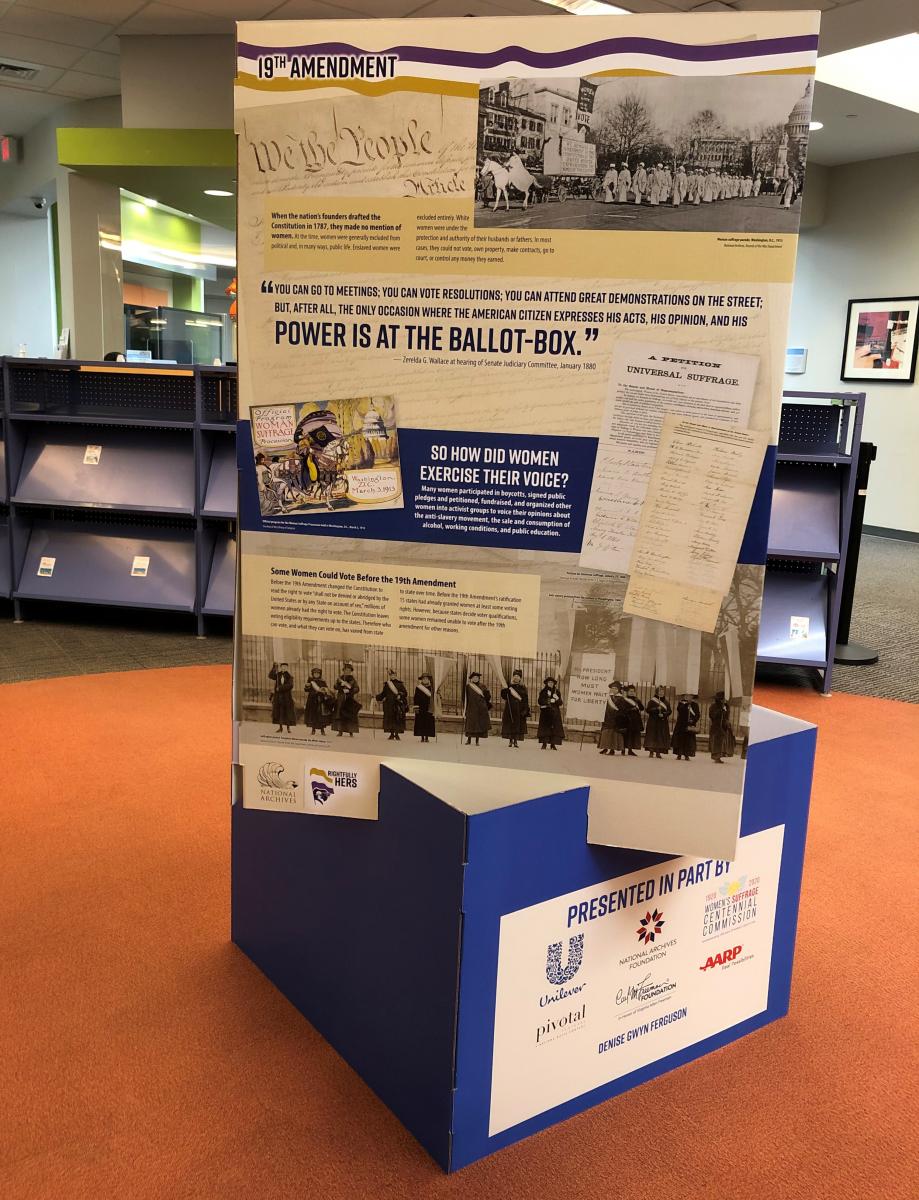
(Left) Copper plates in the Robinson-Spangler Carolina Room and (right) the "Rightfully Hers"exhibit from the LOC.
If you are interested in history or political science, the U.S. State Department provides an amazing collection called the Foreign Relations of the United States. These are speeches, letters, memorandums, telegraphs and more about specific incidents or time periods.
For publications that are created and intended to be accessed online, our library has catalog records with links taking you directly to that information. Would you like coloring pages of wildflowers that tell you what color each part of the plant should be? See Celebration of Wildflowers from the United States Department of Agriculture (USDA).
--
This blog was written by Mimi Curlee, federal depository librarian, at Charlotte Mecklenburg Library
